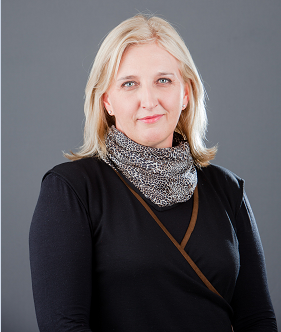Public Sector Transparency and Accountability Vital to Caribbean Economic Growth
Leaders from the public sector and professional accountancy organizations from throughout the Caribbean are meeting in Nassau to revitalize efforts to improve public sector financial management and support the region’s economic growth.
Opening the three-day strategic dialogue, The Bahamas Minister of State for Finance, The Hon. Michael Halkitis, MP, said: “Public sector spending comprises a significant proportion of Caribbean gross domestic product. Given the sums involved, it’s vital that we get our houses in order. Our regional economy depends on us making wise spending decisions based on accurate information. Enhanced public financial budgeting, accounting, and reporting, based on accrual accounting, will enable us to shine a light in every corner of our finances, and help bring sustainability to government expenditure, and the communities we serve.”
Sponsored by The Bahamas Government and donor partner CPA Canada, and hosted by the Institute of Chartered Accountants of the Caribbean (ICAC), the International Federation of Accountants® (IFAC®), and the World Bank, the groundbreaking gathering was convened to bring closer inter-governmental collaboration, and strengthen relationships between public sector leaders and the accounting profession.
ICAC President Jasmine Davis, welcoming delegates, commented: “The accountancy profession possesses strong skills to help our peers working in government build confidence in public sector finances. We wholeheartedly support their efforts to better integrate our region with the global economy—a task that can only achieve its full potential when capital markets, investors and our own citizens know that our government finances are based on solid foundations.”
IFAC Chief Operating Officer Alta Prinsloo, said: “The last global financial crisis highlighted the inherent weaknesses of heavily indebted governments around the world, including in the Caribbean. Managing and forecasting public revenues and expenditure, and controlling fiscal imbalances, can only be achieved via robust accounting practices. Via our Accountability. Now. campaign, we are delighted to support this exciting event that will stimulate intensive communication, consultation, and collaboration across the Caribbean governments, the accounting profession, and international partners including the World Bank.”
Samia Msadek, Director of the World Bank Group’s Governance Global Practice emphasized that strong public financial management is critical to national success and prosperity. “How governments manage taxation, borrowing, and spending is essential to economic growth, to poverty-reduction, and to ensuring that the Caribbean’s residents can improve their lives through inclusion and shared prosperity,” she said.
The three day invitation-only roundtable discussions will cover regional economic, social, and business imperatives; public financial reporting reforms (regional and international perspectives); engaging stakeholders; challenges of the accountancy profession in the Caribbean and capacity-building strategies; and technical training on latest developments in International Public Sector Accounting Standards.
About ICAC
Since its establishment in 1988, the Institute of Chartered Accountants of the Caribbean has provided a forum for the advancement of the accountancy profession in the Caribbean. Today, with a network of approximately 3,700 professionals, the ICAC is the leading regional organization dedicated to advancing the interest of accountants and professionals in the finance industry within the Caribbean through the promotion of internationally acceptable standards and best practices, thought leadership, research and continuing professional development. In 2006, the ICAC was recognized as an “Acknowledged Regional Grouping” of IFAC. www.icac.org.jm
About the World Bank Group
The World Bank Group is a development finance institution that provides financial and technical assistance to developing countries around the world. Its mission centers around two main goals: Ending extreme poverty by 2030 by decreasing the percentage of people living on less than $1.90 a day to no more than 3 percent, and promoting shared prosperity by fostering the income growth of the bottom 40 percent for every country. The World Bank Group is headquartered in Washington, DC, and has more than 10,000 employees in more than 120 offices worldwide. www.worldbank.org
About IFAC
IFAC is the global organization for the accountancy profession, dedicated to serving the public interest by strengthening the profession and contributing to the development of strong international economies. It is comprised of more than 175 members and associates in 130 countries and jurisdictions, representing almost 3 million accountants in public practice, education, government service, industry, and commerce. Accountability. Now. is an IFAC initiative to help drive awareness of the critical need for high-quality, transparent, comparable public sector financial reporting, and the importance of engaging citizens in the process of holding governments to account.
Public Sector Leaders and Accountants Meet to Map Strategic Approach


